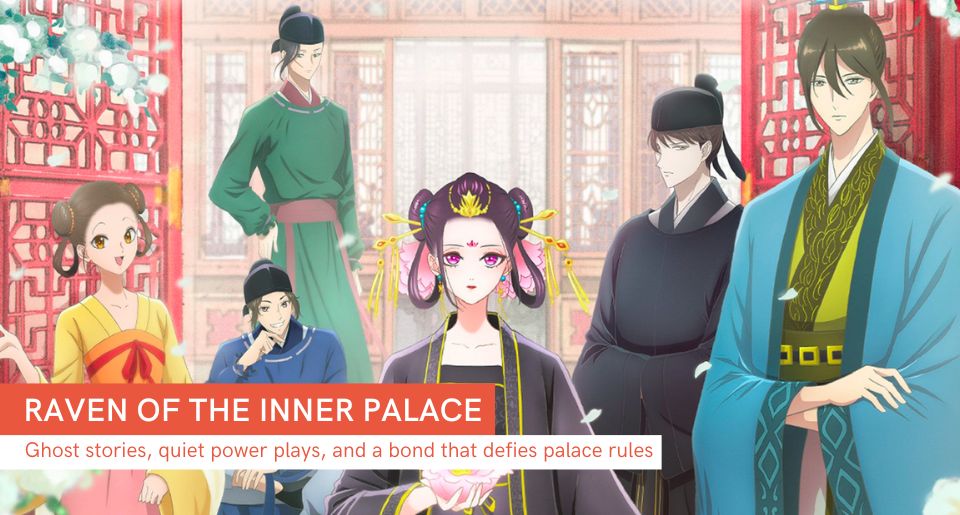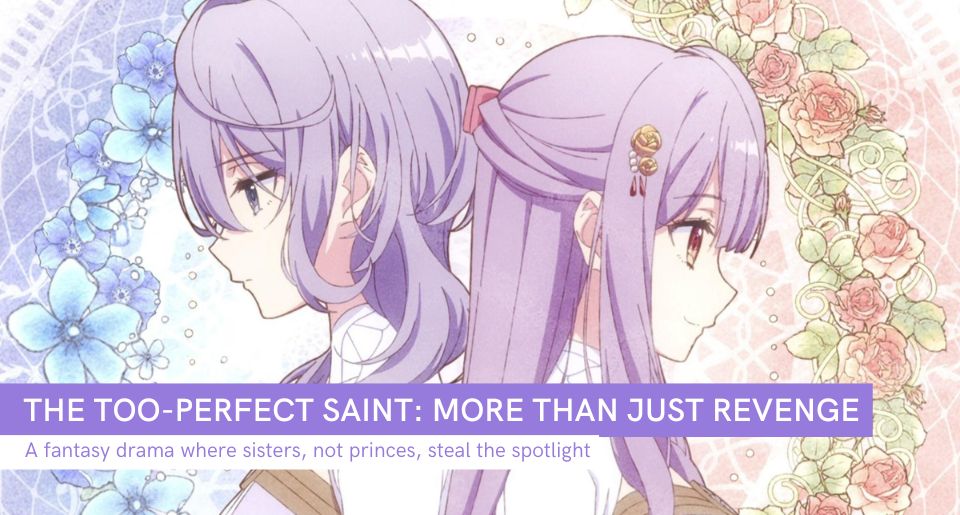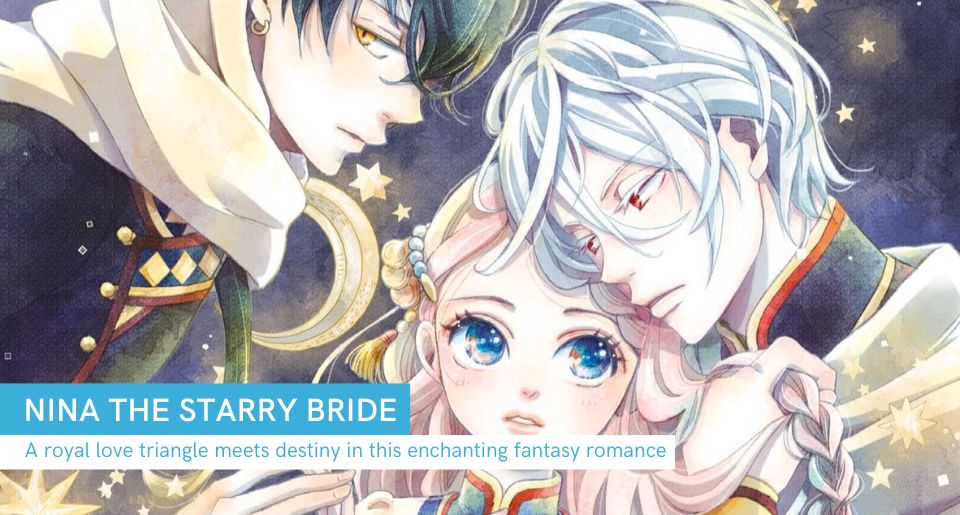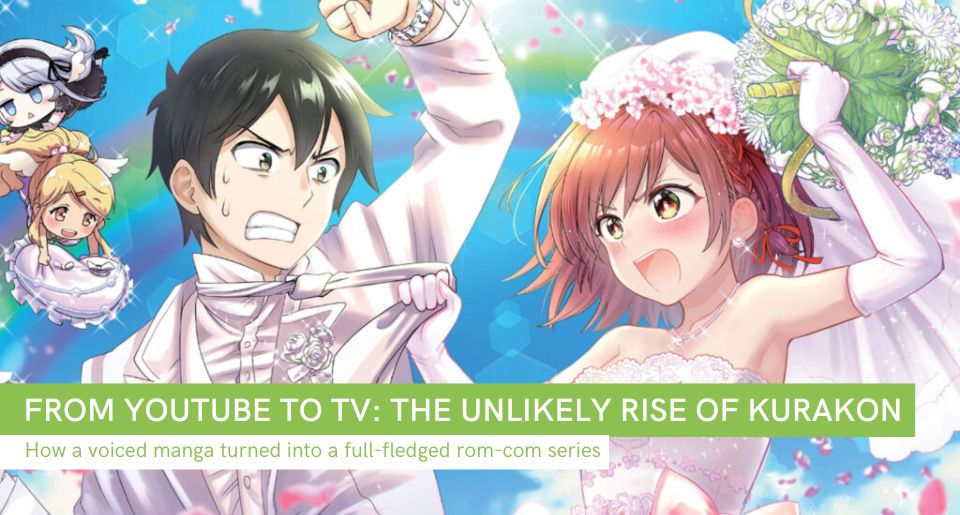Let’s say you just finished binge-watching The Apothecary Diaries and are sitting there wondering what to watch next. You’re not in the mood for another loud isekai or shounen battle anime. You want something a little more mature, a little quieter, but still filled with secrets, court drama, a splash of fantasy, and characters that actually make you care.
Cue Raven of the Inner Palace, the sleeper hit of Fall 2022 that barely made a sound but had way more to offer than anyone expected.
For Fans of Court Intrigue with a Twist
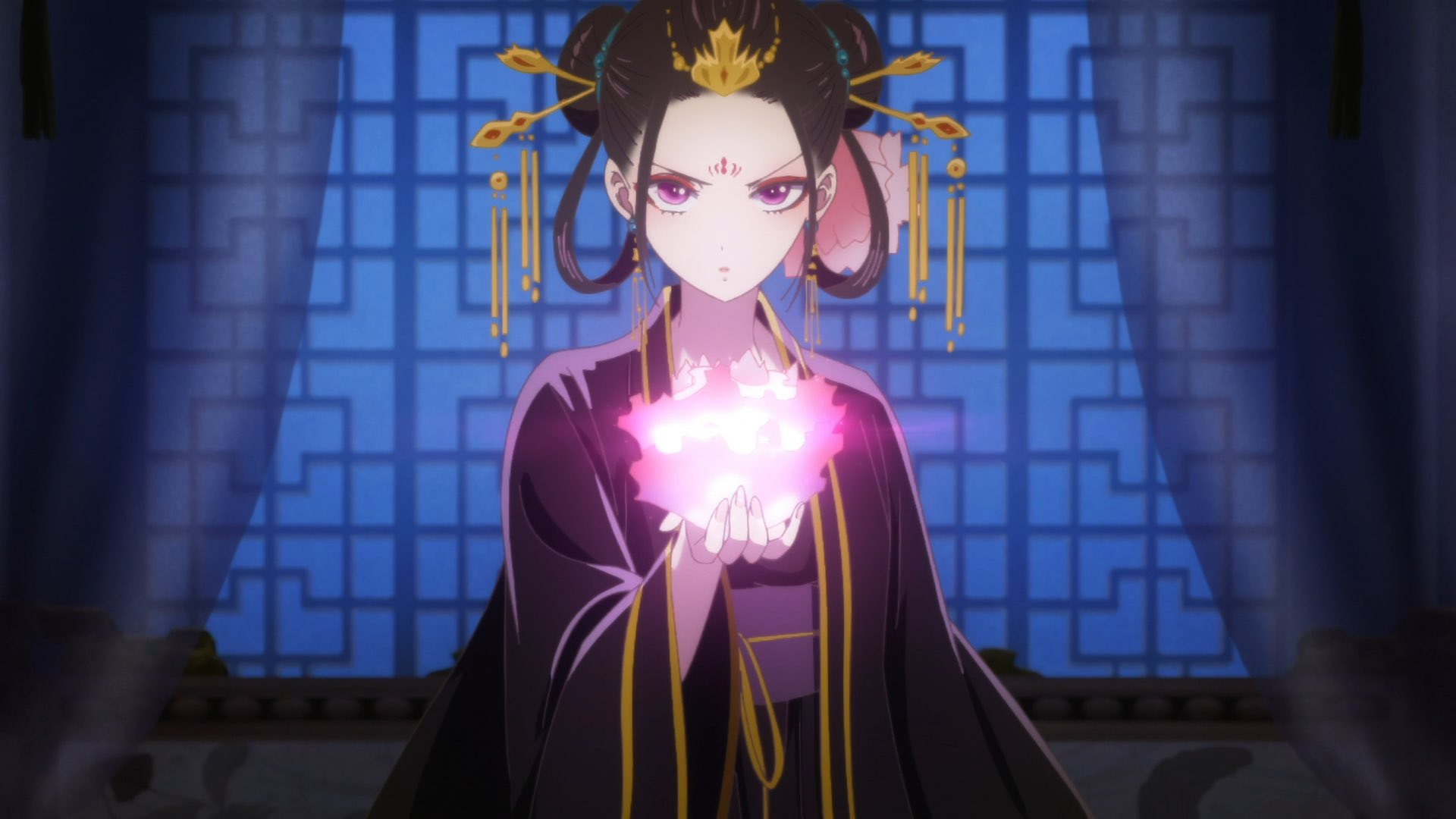
The Raven Consort.
If you liked The Apothecary Diaries, then Raven of the Inner Palace is right up your alley, though it does its own thing. While The Apothecary Diaries leans heavily on sharp dialogue, logic, and solving mysteries through deduction, Raven of the Inner Palace goes the more spiritual route. It blends ghost stories and ancient rituals with quiet political tension inside a fantasy version of imperial China.
And if you're a fan of older series like Saiunkoku Monogatari, this will probably scratch that itch too, but with more supernatural elements and tighter pacing.
So, What’s It About?
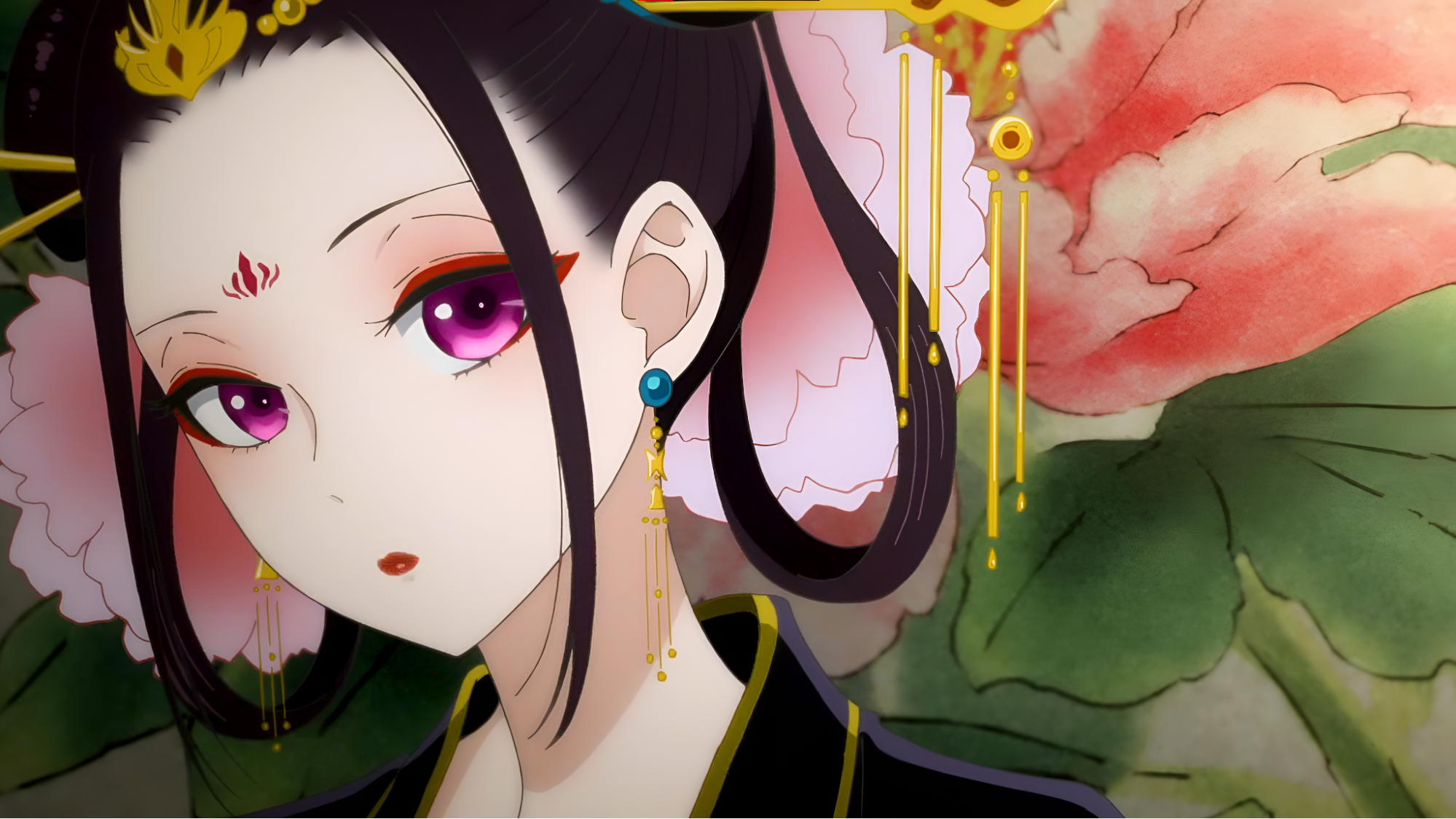
Jusetsu, the Raven Consort, might come off as someone intimidating, but in reality she’s just an awkward sixteen year old.
The story is set in a fictional version of imperial China and revolves around a mysterious woman known as the Raven Consort. Though she technically holds the title of a consort, she’s nothing like the others—she doesn’t serve the emperor, doesn’t live among the rest, and keeps to herself in a quiet, hidden part of the palace. Her name is Ryuu Jusetsu, and no one really knows what to make of her.
What sets her apart is that she performs supernatural tasks for the court. We’re talking exorcisms, ghostly investigations, and uncovering long-buried secrets—all through mysterious arts tied to a bird goddess. If you’ve lost something or want to send a message to the dead, you go to the Raven Consort. But make no mistake: she’s not just a palace priestess. She carries a burden no one really understands… until the emperor comes knocking.
That emperor is Ka Koushun—young, curious, and not the type to blindly follow the rules. He visits Jusetsu against custom, setting off a chain of events that reveals how deeply the Raven Consort is tied to the palace’s dark past. His decision to involve himself with her changes not only their lives, but also the future of the empire itself.
Vibes Over Action — But It Works
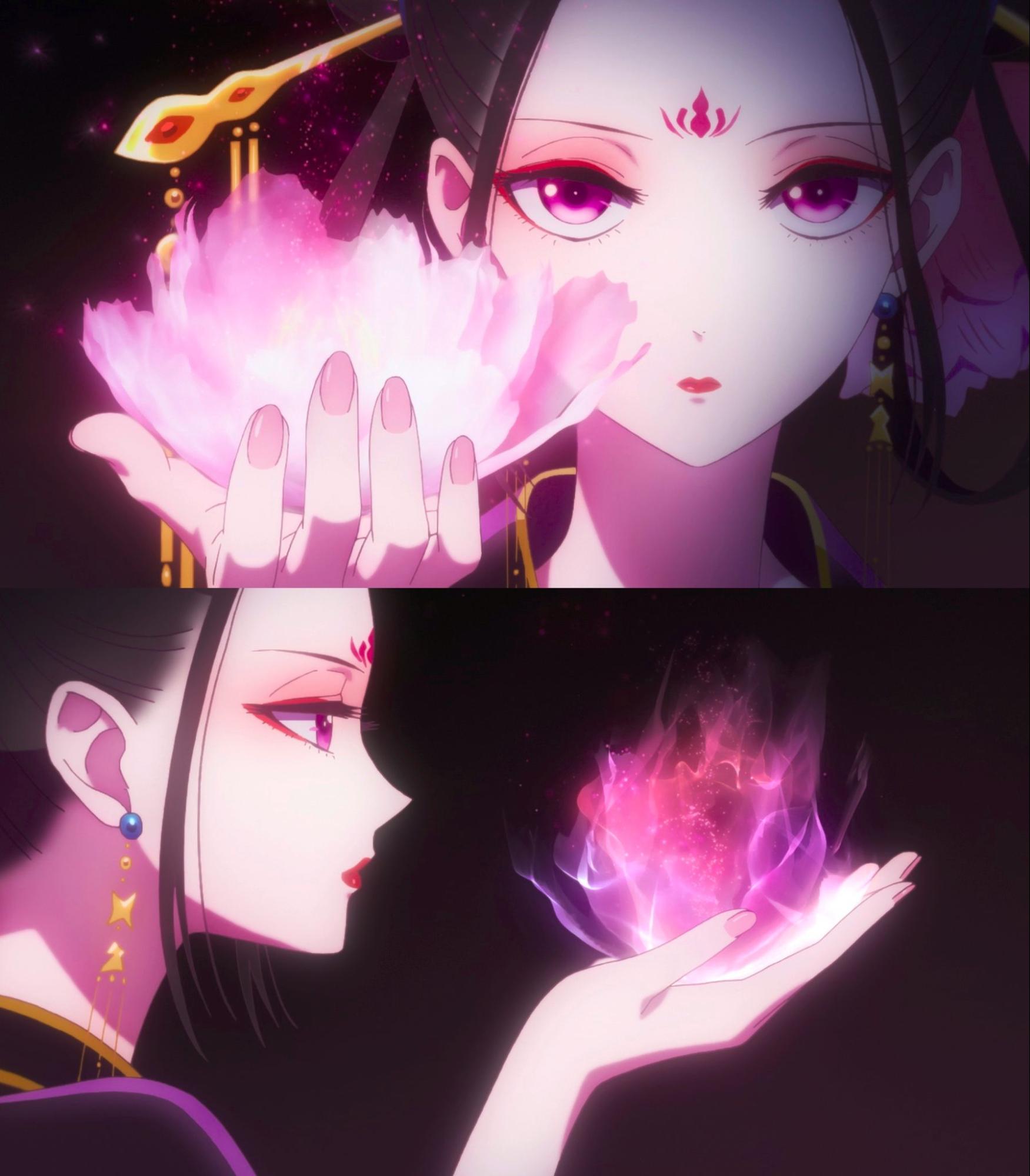
Jusetsu uses the flower on her hair to perform her magic.
Let’s be clear—this isn’t an action-heavy show. There are no sword fights, no battle arcs, and no grand strategy wars. Instead, it’s the kind of show that takes its time and leans into atmosphere. Each episode usually focuses on a new supernatural case, and slowly, these smaller stories build toward something bigger and more personal.
There’s a strong episodic rhythm, almost like a detective series but with ghosts instead of criminals. Some episodes are creepy, some are emotional, and some just make you sit there thinking, “Wait… why is no one talking about this anime?”
But what really works is how these little cases build character depth. Jusetsu might seem cold at first, but as she takes on each task, we learn more about her—her history, her power, her trauma, and the walls she’s built around herself. Koushun, meanwhile, isn’t just the noble emperor type. He has his own scars, and his quiet efforts to understand Jusetsu without pushing her feel surprisingly genuine.
The Main Duo: Jusetsu and Koushun
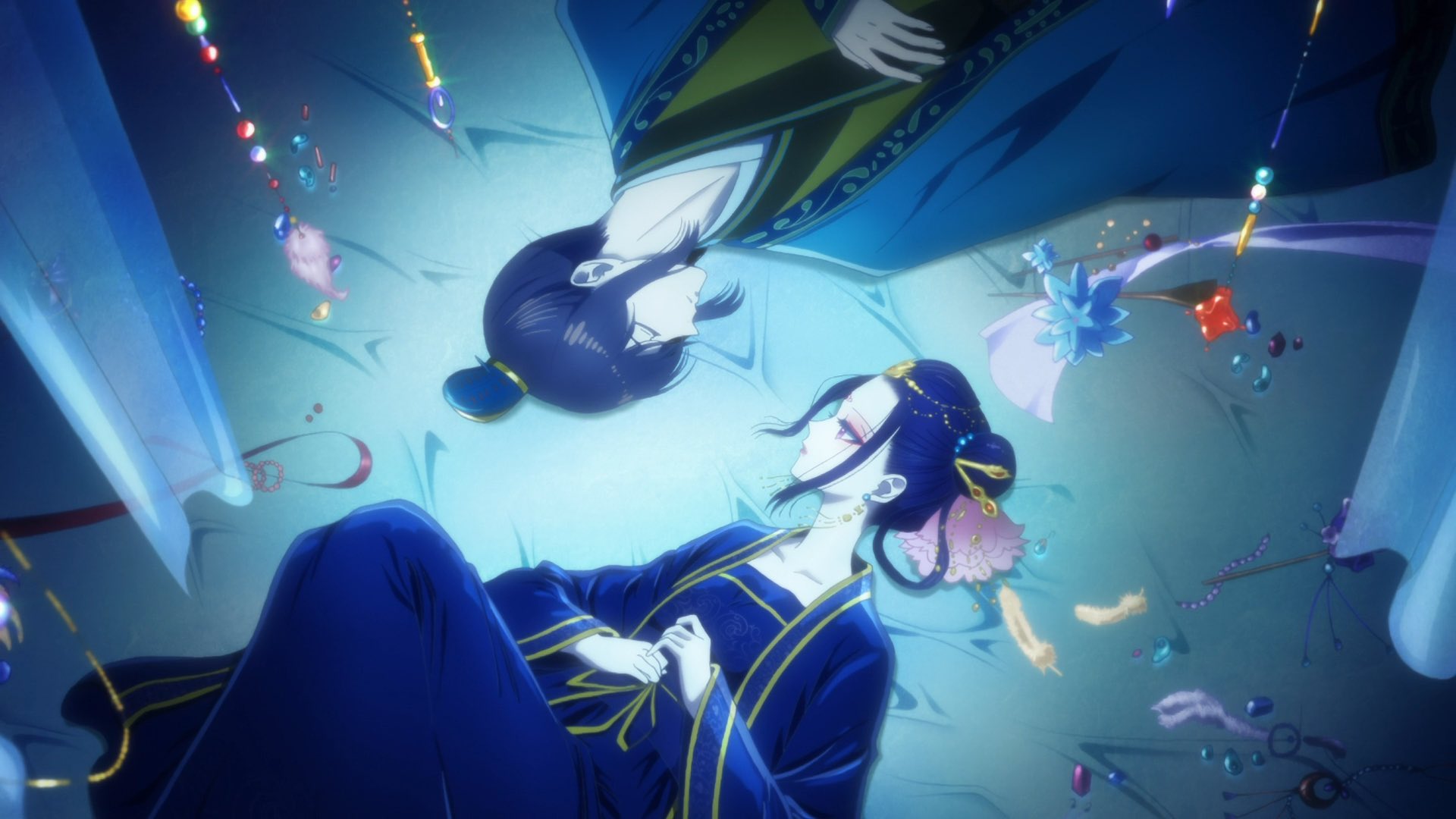
Jusetsu and Koushun, as seen in the ending theme.
One of the most compelling parts of Raven of the Inner Palace is the bond between Jusetsu and Koushun. It's not your typical love story—in fact, it’s not even really a romance—but the connection they build is deep, complex, and quietly powerful in a way that sticks with you.
Jusetsu is someone who lived in seclusion for most of her life. People either revere her or fear her, and very few dare to get close. She keeps her walls high, not just because of her role as the Raven Consort, but because she’s been conditioned to live in isolation. Trust doesn’t come easy for her. So when someone like Koushun enters her world, it naturally throws things off balance.
And Koushun? He’s not your usual emperor. He’s thoughtful, steady, and more patient than you'd expect for someone sitting on a throne. Before he rose to power, he lived through a harsh and dangerous court—one where the former empress held all the strings. She was ruthless, and Koushun paid the price for it. People close to him were killed, and he spent years in exile while quietly planning to reclaim control. Eventually, he overthrew her and took his rightful place as emperor—not for revenge, but to stop the cycle of cruelty that had poisoned the palace for so long.
That history makes his relationship with Jusetsu all the more interesting. He sees the ways she’s been bound by tradition, secrecy, and duty—just like he once was. He doesn’t approach her as someone to be used or controlled. Instead, he treats her like an equal. Someone with her own thoughts, pain, and desires. And in a place like the inner palace, where nearly everything is wrapped in power games and survival, that kind of respect is rare.
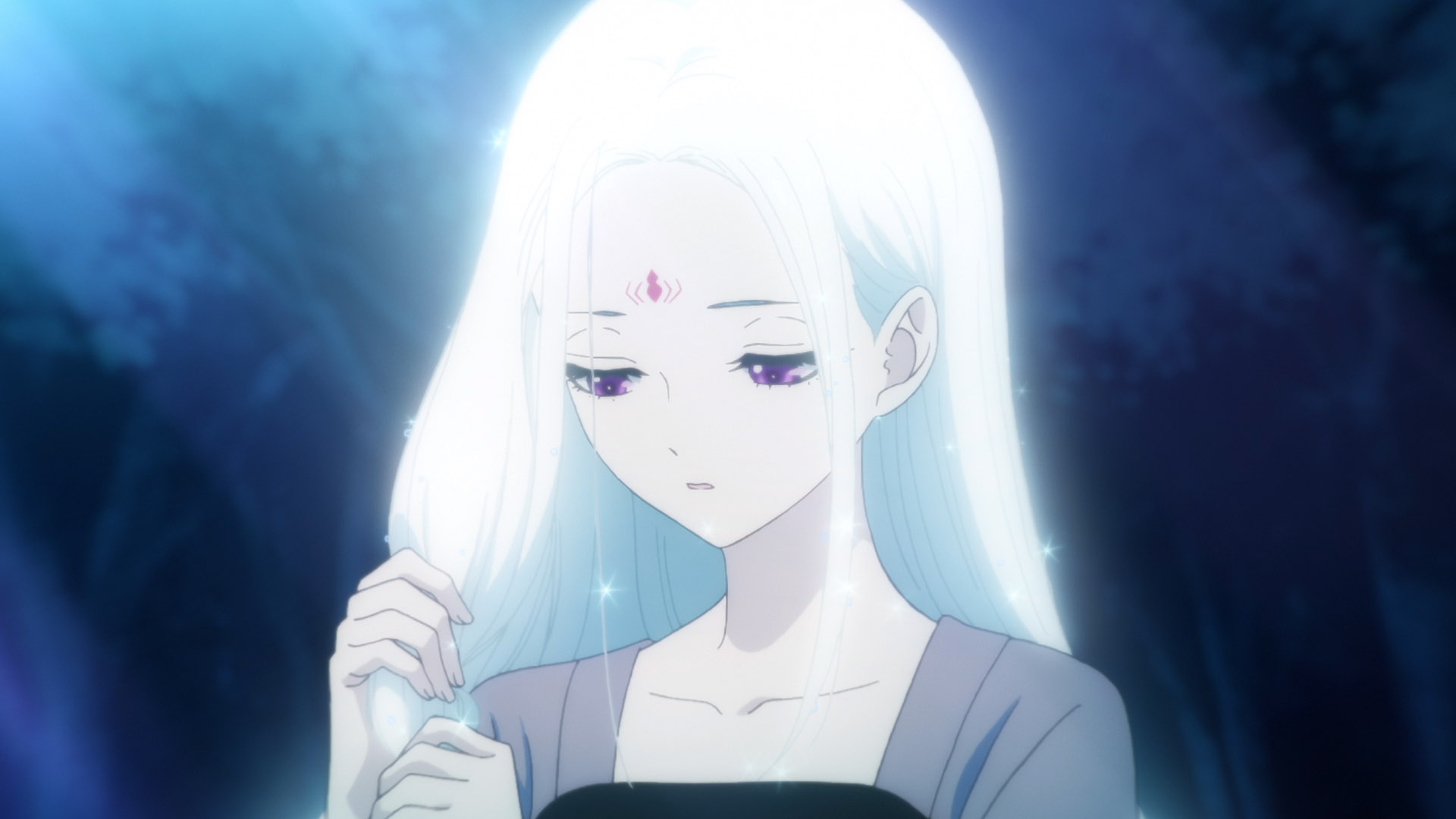
Jusetsu has white hair, but she regularly dyes it black to escape death.
Their interactions are always grounded and honest. No unnecessary drama, no forced tension—just a slow, genuine connection that unfolds naturally. There’s definitely something unspoken between them, a kind of quiet affection that builds over time. It’s never overplayed or made into a central plotline, but it’s there. You feel it in the way they speak to each other, how they listen, and how much they come to rely on one another.
Now, if you're hoping they ride off into the sunset together… that’s not really how this story goes. Without giving too much away, things don’t follow the classic fairytale path. But that doesn’t make their relationship any less meaningful. In fact, it might make it even more powerful. What they share isn’t about big romantic moments or declarations—it’s about change. Growth. Healing. Two people who met at the right time and helped each other move forward, even if they couldn’t walk the same path forever.
Their story is proof that not all relationships need to end in romance to matter. Sometimes, just being understood by someone is enough. And in a world built on secrets, power, and loneliness, the simple act of being seen can be everything.
The Supporting Cast Is Surprisingly Good
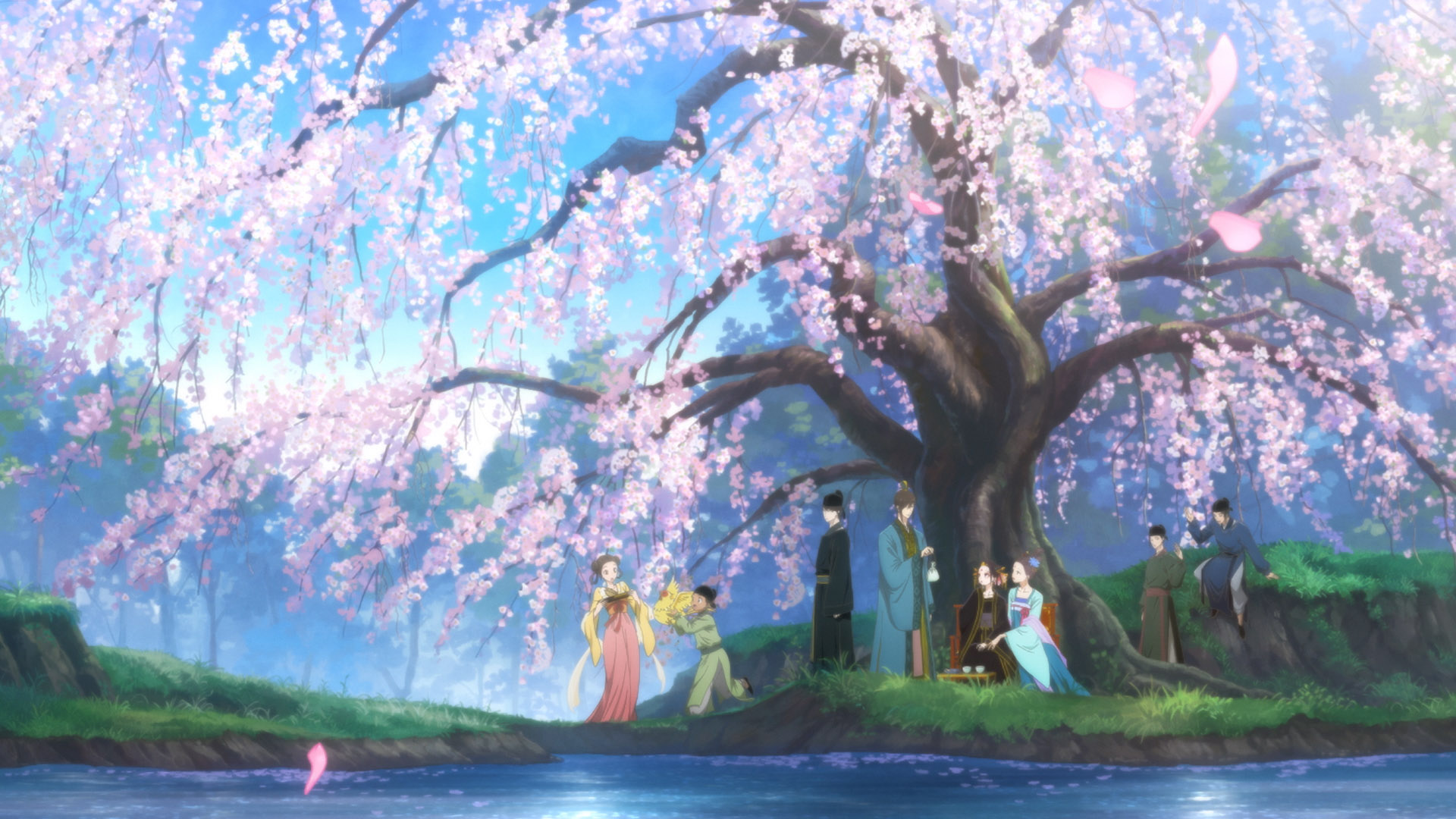
The main cast of the series.
This isn’t a two-person show either. The supporting characters are worth mentioning, especially Jusetsu’s lady-in-waiting, Jiujiu, and the eunuchs who assist her. Each of them brings something to the table, and their presence adds layers to palace life that anime often skips over.
There’s actual thought given to how the inner palace functions—the politics, the traditions, the way people navigate power even without saying a word. There’s a heavy historical influence in everything, from the clothing (which clearly takes notes from the Tang Dynasty) to the use of color, makeup, and symbolism.
It’s Not Perfect, But It Doesn’t Have to Be
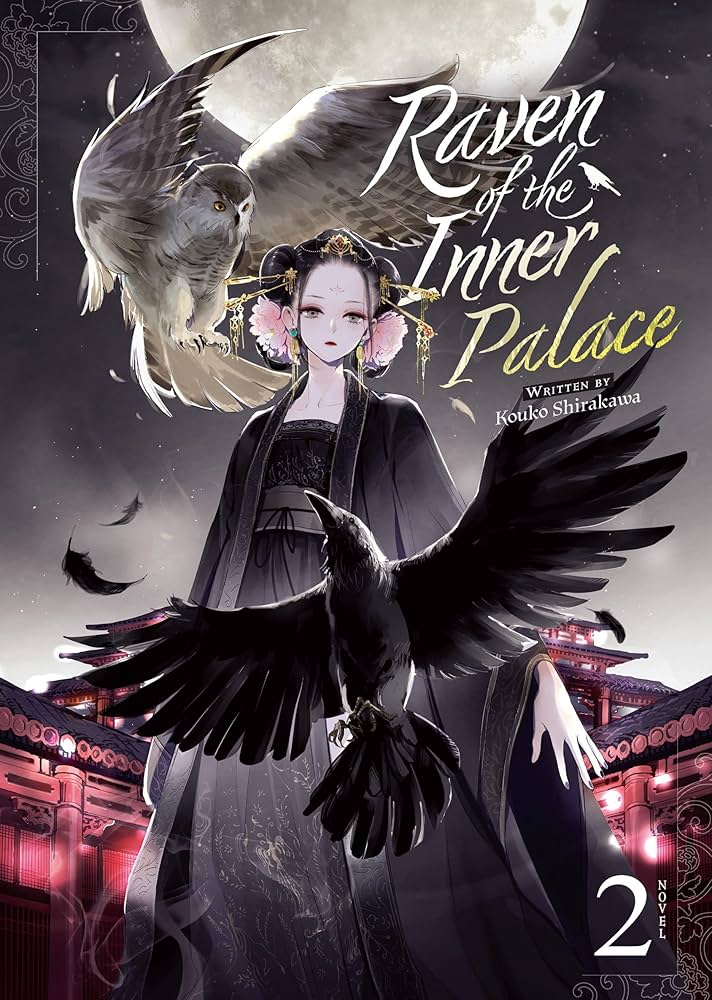
Jusetsu, as seen in the cover of the light novel.
Yeah, the animation isn’t the best. You’ll see the same magical flower-blowing animation reused a few too many times. The OP song can be a hit or miss even though it matches the tone of the show, and there’s a repeated narration at the start of every episode that you might get tired of by episode four.
But none of that really takes away from what makes Raven of the Inner Palace great. The art direction is solid, the music is beautiful (the ending song especially), and the voice acting? Spot-on. Saku Mizuno as Jusetsu and Masaaki Mizunaka as Koushun absolutely carry the emotional weight of the series.
Final Thoughts: Quietly Excellent
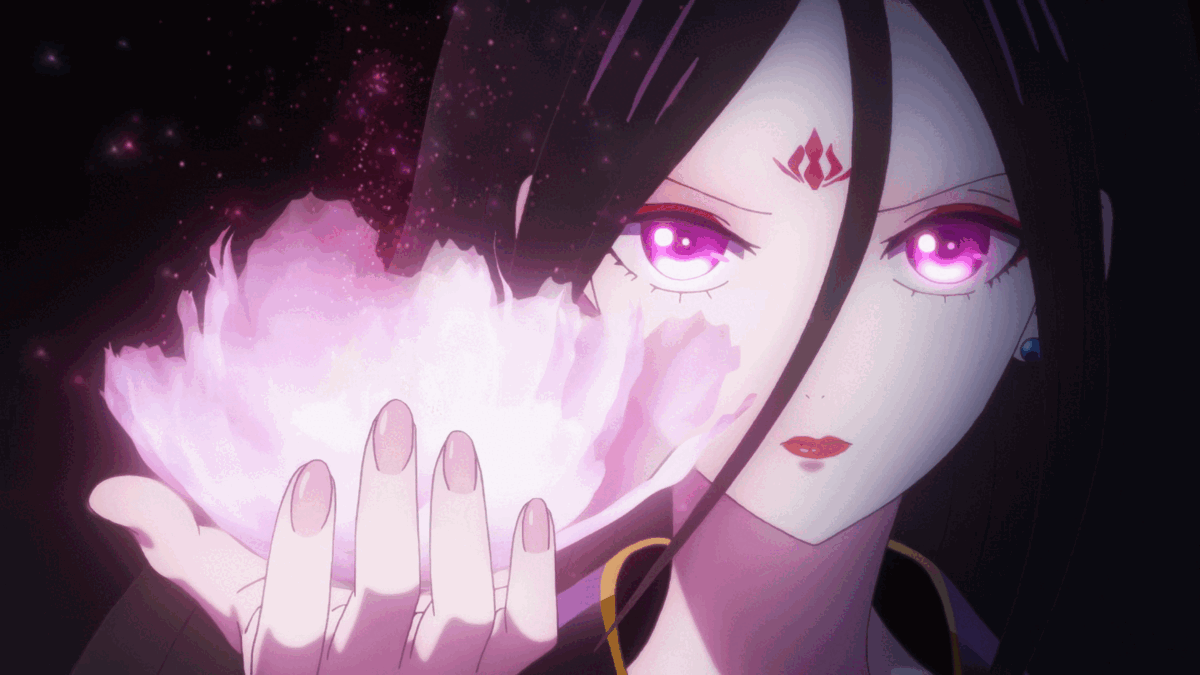
Raven of the Inner Palace isn’t trying to be the next mega-hit, and that’s okay. It doesn’t need bombastic fights or flashy animation to leave an impact. It’s a story about tradition, trauma, and quiet rebellion. About letting go of the past. About finding freedom on your own terms.
It’s the kind of anime that might not scream for your attention, but if you give it a chance, you’ll be glad you did.
So if you’re into ghost stories, palace drama, elegant storytelling, or just want something different from the usual anime lineup, do yourself a favor and check out Raven of the Inner Palace. And maybe grab the light novels while you’re at it — they’re all being translated, and there’s even a sequel series now.
Underrated? Absolutely. Forgettable? Not even close.
Kokyu no Karasu - Official Trailer 3 | TVアニメ後宮の烏 | Raven of the Inner Palace
TVアニメ「後宮の烏」ノンクレジットムービー オープニング・テーマ「MYSTERIOUS」:女王蜂
TVアニメ「後宮の烏」ノンクレジットムービー エンディング・テーマ「夏の雪」:krage
What do you think?
Will Koushun and Jusetsu end up together?
How did Jusetsu become the Raven Consort?
Will Jusetsu finally be free of her duties as the Raven Consort?
Let us know in the comments or drop us a line on social media: X (formerly Twitter), Instagram, Facebook! We’d love to hear from you!
ZenPlus is your one-stop shop for all things Japanese. Check out our marketplace for manga volumes, cosplay, figures, and other merch from the Raven of the Inner Palace franchise!
You can watch Raven of the Inner Palace on Netflix, Crunchyroll and Prime Video.
About the Writer
Cristy is a freelance artist and writer who has been obsessed with anime and manga since childhood. Her love for these imaginative worlds fuels her creative endeavors, and she shows no signs of stopping anytime soon.

